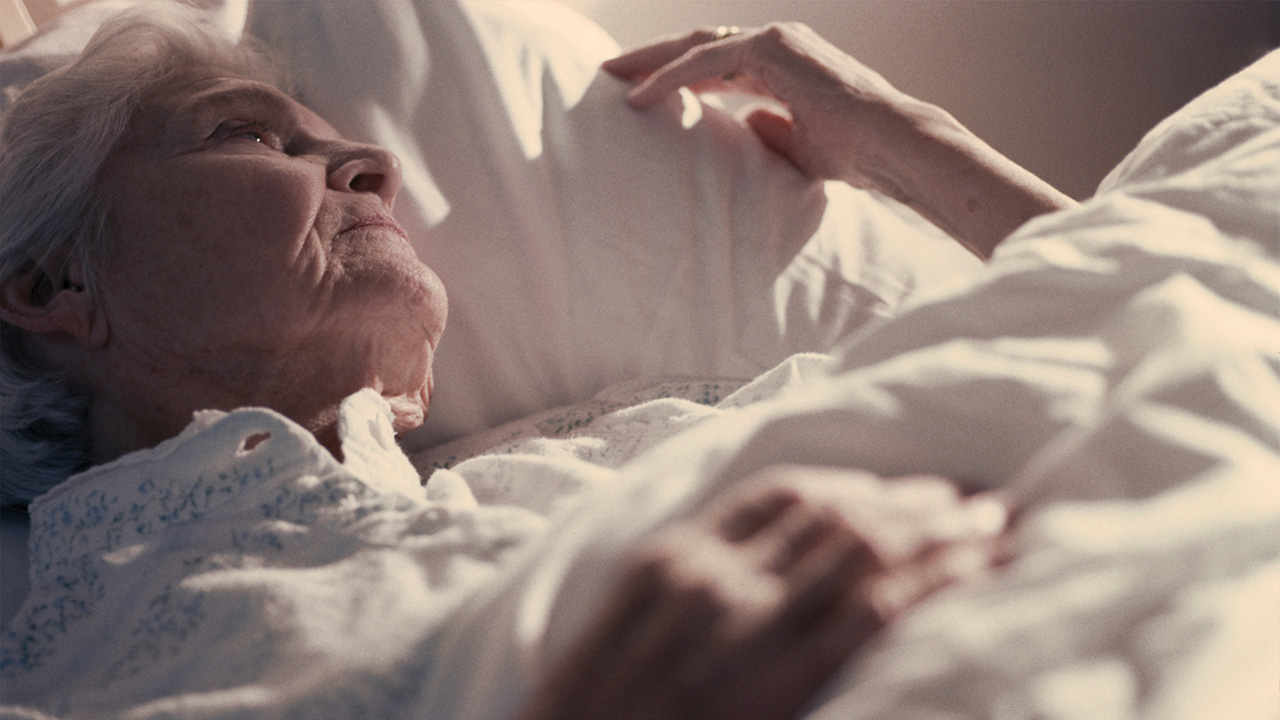Caring for aging and ill loved ones does not come naturally to everyone—especially when Alzheimer’s disease or other types of dementia are involved. As a young woman, I did not fully understand these devastating conditions or how to interact with dementia patients. For these and other reasons, I came to dread visiting my grandma at her nursing home.
Dementia Stole My Grandma
My grandmother, known lovingly by most of her family and close friends as “Momma Dye,” lived out her life and faced dementia the best she could with the help of her daughter and several other caring individuals. I must admit it is difficult to face that I was not one of the key family members who helped Momma Dye through her last years.
I am unsure of when Momma Dye’s official diagnosis occurred. Some years before her nursing home placement, I do remember that my grandmother started having trouble paying her bills and balancing her checkbook. This was one of the first signs we noticed that something was “off.” To make matters worse, she also became extremely paranoid about her finances. She believed that her son and daughter were stealing her money, which made it difficult for them to help and protect her.
Initially, my aunt lived on the same land with Momma Dye. But when my aunt and her husband decided to move to a different area, they built a small one-bedroom home for her on their new property. With the help of her children and grandchildren, my aunt did everything she could to keep Momma Dye safe and secure for as long as possible.
The day finally did come when the decision was made to move my grandmother into a nursing home. Momma Dye’s decline had accelerated to the point where my aunt could no longer care for her in the in-law suite on their land. She remained in the nursing home until her death a few years later. Sadly, Momma Dye experienced all the stages of dementia. In her last days, she was bedridden and unable to eat or drink.
Nursing Home Visits Can Be Tough on Everyone
The saddest part of it all is that my dad and I had trouble understanding the disease process. Coping with nursing home placement is hard for most families, but learning to deal with someone who doesn’t remember you or won’t remember you ever visited makes it even more heartbreaking. The truth is that my dad and I rarely visited my grandmother during those years. I simply did not know what to say or do when I went to see her.
What’s troubling is that I worked in Momma Dye’s nursing home as a social worker and still struggled to visit her. I had just started working in the field of social work and the realm of elder care was very new to me. Despite my best efforts, it was frustrating to try to carry on a conversation with Grandma. Sometimes when I would visit, she would be packing her belongings to “go home” and become angry when she found out she had to stay where she was.
I did not know how to handle her odd behaviors, which I later learned were very typical for someone in the middle stages of dementia. In all honesty, I suspected my visits triggered some of these outbursts. I feared that I was making her angry and upset, which benefited no one in the long run. At that time, the nursing home where my grandmother lived did not have much to offer in regards to dementia education.
Furthermore, it made me extremely uncomfortable when she mistook me for my mom. Only a couple years earlier, I had watched my mother suffer with cancer for six months before passing away. I was 21 years old when she died. The emotional anguish I felt when being called her name was indescribable. I was still grieving her loss and it was too much for me.
I felt so much anger, frustration, denial and confusion that it was easier to just avoid visiting with a family member whom I loved dearly. Of course, this decision led to inescapable feelings of guilt. The entire situation was so unfair to my grandmother, my aunt and me!
Turning Guilt Into a Learning Experience
Ultimately, my aunt bore the responsibility of my grandmother’s care with little help for many years. Looking back on that time, I regret not achieving a better understanding of Momma Dye’s condition, the burden of caregiving and my own emotions. I realize now that, while my feelings may have been selfish, they were also normal to an extent. In the early 90s, the internet was just getting started; we didn’t have the luxury of online caregiver support groups or easy access to medical information like we do now. Even the renowned Alzheimer’s Association was only founded about a decade earlier in 1980.
Although I felt guilt, shame and regret over my actions both while Momma Dye was alive and following her death, I decided to transform this unfortunate experience into something I felt could benefit others. My experience with my grandmother inspired my personal and professional journey. I made a decision that if I was going to stay in the elder care sector, then I had to find better tools and information to offer the families I served.
I chose to continue in this field by learning everything I could about dementia and achieving not only my social worker license but also my assisted living certificate and nursing home administrator license. Almost eleven years after my grandmother’s death, I decided to write “Alzheimer’s Days Gone By: For Those Caring for Their Loved Ones,” to honor her memory and help others find some light in that dark tunnel.
I have worked in the geriatric health care industry for more than 18 years now with an emphasis on dementia care. Throughout my career, I have helped thousands of families to continue a “healthy” journey with their loved ones who are living with these conditions and with themselves.
For me, the revelation came many years too late, but I will continue to learn, educate, speak and write about these topics in my grandmother’s memory. I acknowledge that I failed Momma Dye while she was still living but know she loved me unconditionally. I believe she would be proud to know that she was part of the reason why I overcame my fear of writing in order to help others.
I do not excuse my behavior all those years ago, but I have learned to forgive myself. I have also long since apologized to my family members for my decisions. Even if others do not extend their forgiveness, self-forgiveness is an important part of being a human and especially a family caregiver. I know I am not the first person to struggle with handling dementia-related behaviors or the difficult emotions that come with visiting a relative in a nursing home. It is my hope that other families can learn from the mistakes I made, avoid missing precious fleeting moments with their loved ones, and eventually let go of any guilt or shame they feel.
Read: How to Get Over Feelings That Prevent You From Visiting the Nursing Home

